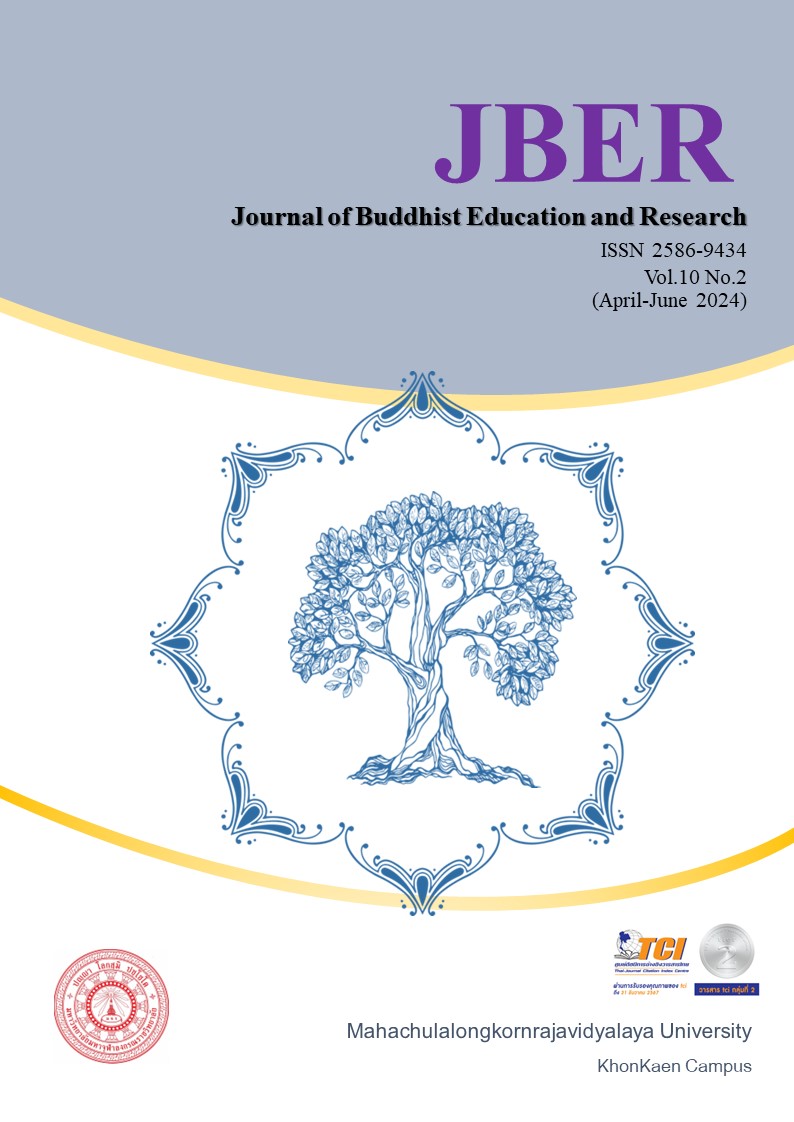LEVERAGING SUFFICIENT EDUCATIONAL INSTITUTION TO LEARNING CENTER BASED ON SUFFICIENT AND SUSTAINABLE ECONOMY PHILOSOPHY OF DOI TAO WITTAYAKHOM SCHOOL
Keywords:
Leveraging, administration Institution, Philosophy of Sufficiency EconomyAbstract
The objectives of this study were is objective. 1) Study the state of school administration according to the philosophy of sufficiency economy of Doi Tao Wittayakom School. The study population is school administrators. Teachers and Educational Personnel The basic education committee consisted of 73 members. Analyze data using averages, standard deviation values. 2) Study on upgrading the management of sufficiency schools to become learning centers in accordance with the philosophy of sustainable sufficiency economy. The informant group is the school director. Study the folk sage or sage. A total of 9 teachers were responsible for the Sufficiency Economy Philosophy Project. The educational instruments were semi-structured interviews. 3) Examination of guidelines for upgrading the management of the Sufficiency School to become a learning center according to the Sustainable Sufficiency Economy Philosophy of Doi Tao Wittayakom School. The informant group selects a specific one. Superintendent of Education Area or Deputy Superintendent of Education Area or Superintendent A total of 9 experts were selected using the Focus Group Discussion method, a tool used in the study to check the effectiveness of the guidelines for upgrading the management of sufficiency schools to become learning centers according to the sustainable sufficiency economy philosophy of Doi Tao Wittayakom School. Analyze the data using mean, standard deviation.
Research findings:
1) The state of school administration according to the philosophy of sufficiency economy of Doi Tao Wittayakom School as a whole was found to be at a high level. 2) The results of the study on upgrading the management of sufficiency schools to become learning centers according to the philosophy of sustainable sufficiency economy consist of 3 aspects: 1) sustainability; Raise awareness and understanding of vision, principles. Objectives and goals of the operation to be a learning center in accordance with the philosophy of Sufficiency Economy (SRO) 2) Participation: It was found that to raise awareness, school administrators and teachers formulated the layout of the base, taking into account the utilization of easy to obtain information in each base, without complexity in the study. 3) Self-reliance: It was found that subsistence production and coexistence with natural resources. Schools that are the mainstay of the drive must be mentors to network schools in promoting them as self-sufficient educational institutions. By sending core teachers to be lecturers to educate on local wisdom, school administrators. The teachers met to plan the integration of local wisdom into the learning curriculum based on the philosophy of Sufficiency Economy in a concrete way. 3. The results of the examination of guidelines for upgrading the management of sufficiency schools to become learning centers according to the philosophy of sustainable sufficiency economy of Doi Tao Wittayakom School. Found appropriate. The possibilities and usefulness overall are at the highest level.
References
คู่มือการประเมินศูนย์การเรียนรู้ตามหลักปรัชญาของเศรษฐกิจพอเพียงด้านการศึกษา กระทรวงศึกษาธิการ (ฉบับปรับปรุง พ.ศ. 2565). กองส่งเสริมและพัฒนาการบริหารการศึกษาในภูมิภาคสำนักงานปลัดกระทรวงศึกษาธิการกระทรวงศึกษาธิการ
รายงานการประเมินตนเองประจำปีการศึกษา. (2565). ของโรงเรียนดอยเต่าวิทยาคม.
เพชรสุภัค กิจสกุล, พิภพ วชังเงินและ ทนง ทองภูเบศร์. (2566). การพัฒนานวัตกรรมการบริหารการศึกษาในยุคดิจิทัล. วารสารนวัตกรรมการบริหารและการจัดการ, 11(2): 147-158.
Downloads
Published
How to Cite
Issue
Section
License

This work is licensed under a Creative Commons Attribution-NonCommercial-NoDerivatives 4.0 International License.





